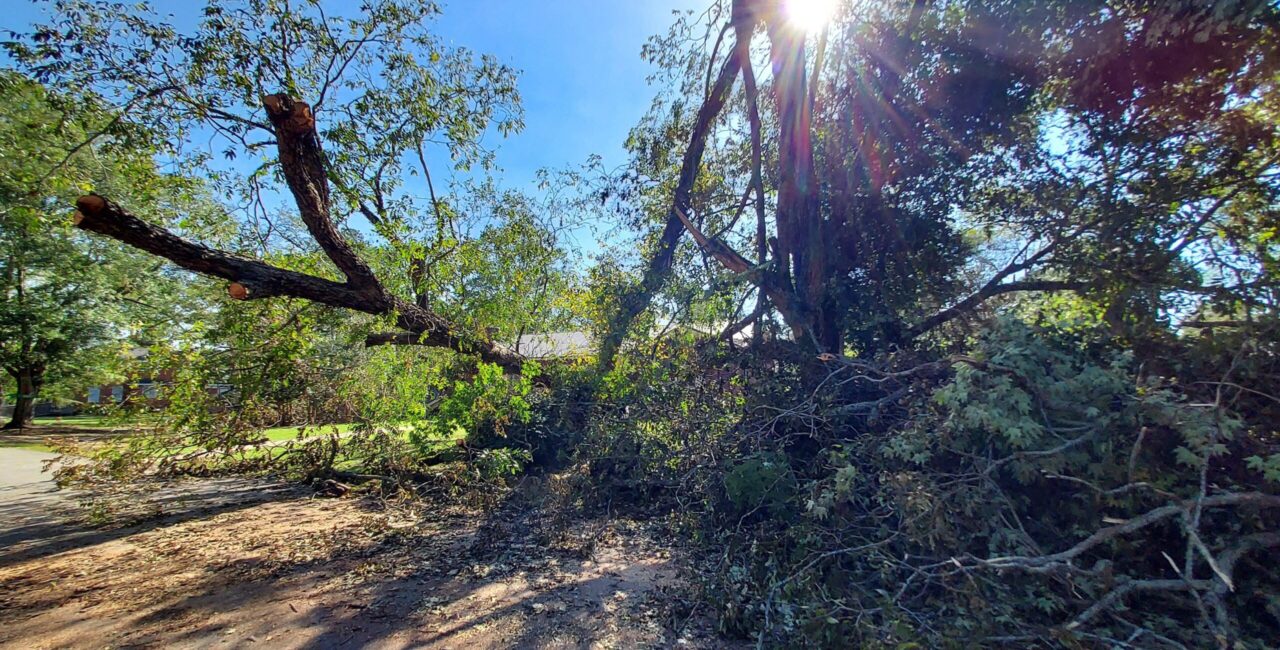
In storm’s aftermath at Erskine, many take the path of gratitude and service
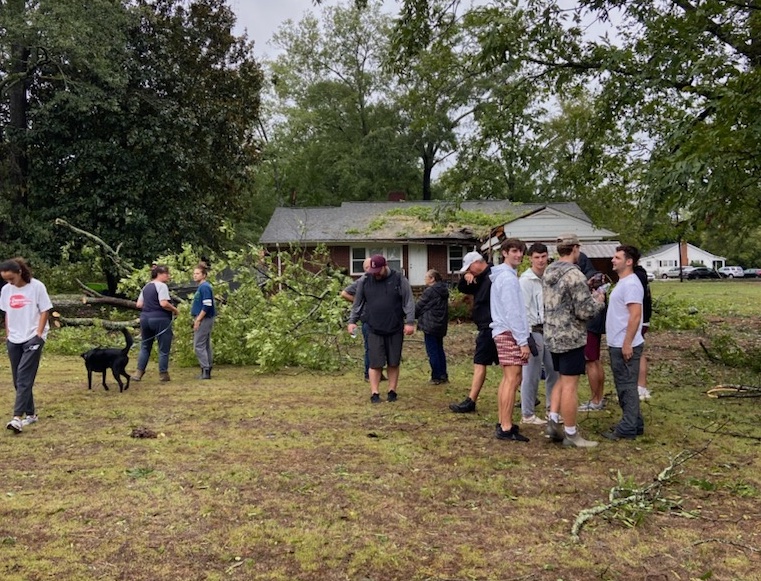
On the first day of October in Moffatt Dining Hall, several Erskine students and staff members spoke about Helene, the storm which had barreled through Due West four days earlier on Friday, Sept. 27. Some were still stunned by the experience. Their comments and those of others reveal a current of gratitude running through the community and finding expression in service to others, beginning as early as Friday and continuing in the days following the storm.
Senior Gifts Officer Beth Boyd, who lives in a campus house on Cleveland Street with her husband, Head Football Coach Shap Boyd, observed that on Friday, in addition to Aramark crew members, Vice President for Operations and Strategic Planning Bobby Clarke, and Bobby’s wife Paula, “a swarm of students, like little ants” came to the aid of the Boyds’ neighbors.
The grateful recipients were Assistant Professor of Psychology Dr. Brianna Van Scoy, whose side porch was pulled away from her house, and Associate Athletic Director Drew Wallace and his family, whose roof was damaged by a tree that fell through the ceiling in the kitchen—a room the Wallace children had occupied a few minutes earlier.
When the students showed up, they gladly removed broken objects and other debris, stacking it away from the houses, then wanted to know what more they could do. “To me, that’s what community is,” Beth says.
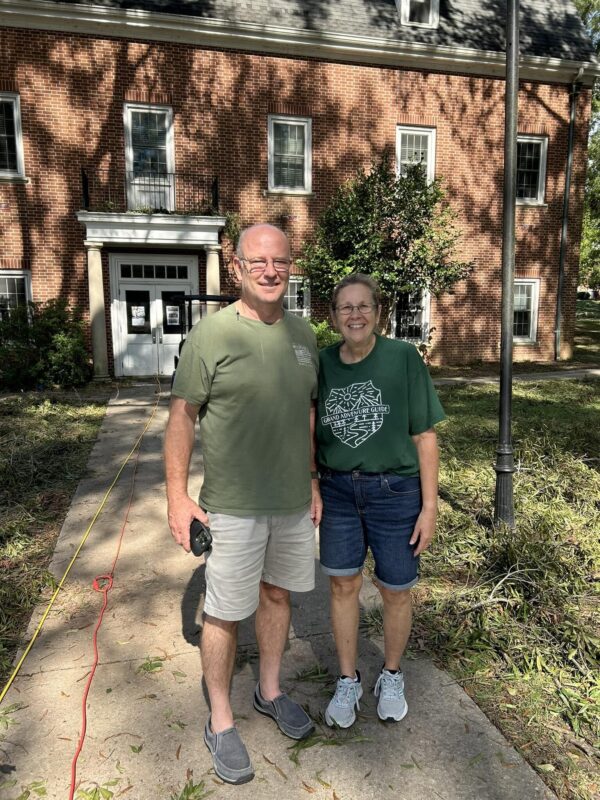
Students interviewed Oct. 1 in Moffatt talked about damage on campus, technology outages, and the flip side of the storm’s effects.
Haley James, a senior from Beaufort, South Carolina, was in her room in Robinson Hall when the wind woke her up early Friday morning. She heard trees falling but thought the noise was thunder. As she walked around campus after the storm had departed, “It didn’t feel real,” she recalls. Even after she had joined other students in cleaning up broken metal fencing at the campus home of Dr. Brianna Van Scoy, she says, “I still kind of feel like it’s not real.”
Andrew Coenen, a sophomore from Charleston, South Carolina, serves as a Resident Assistant, so his phone “started blowing up” early Friday morning when trees began to fall. He was “shocked by the lack of actual property damage,” he says. A tree which had been leaning toward Grier Hall before the storm, for example, fell just between the dorm and a parked car, causing no damage to the structure or the vehicle.
“It was just a miracle that we didn’t get as much damage as we could have,” says Shannon Talbert, a senior from Stoneboro, Pennsylvania. “We are so blessed that God protected us from all the disaster that could have been.”
“It’s honestly been a de-stressing event,” Shannon admits. The lack of internet connection has been “refreshing,” she says, adding, “We’re actually enjoying finding things to do.”
Junior Ellie Jordan, from Lugoff, South Carolina, a student in the Honors Institute, would like to do more of her work in person and on paper now.
“In a way, the power outage is reversing what COVID did,” Shannon says. While COVID drove everything online, the outage caused by the storm drew people together. She would like to “continue to be more unplugged in the future.”
Andrew says these few days after the storm have provided an opportunity to “hang out with friends, have a bonfire, go to bed early, and enjoy quality time with others—free of phones.” He also remarked on students “stepping up to help” around campus.
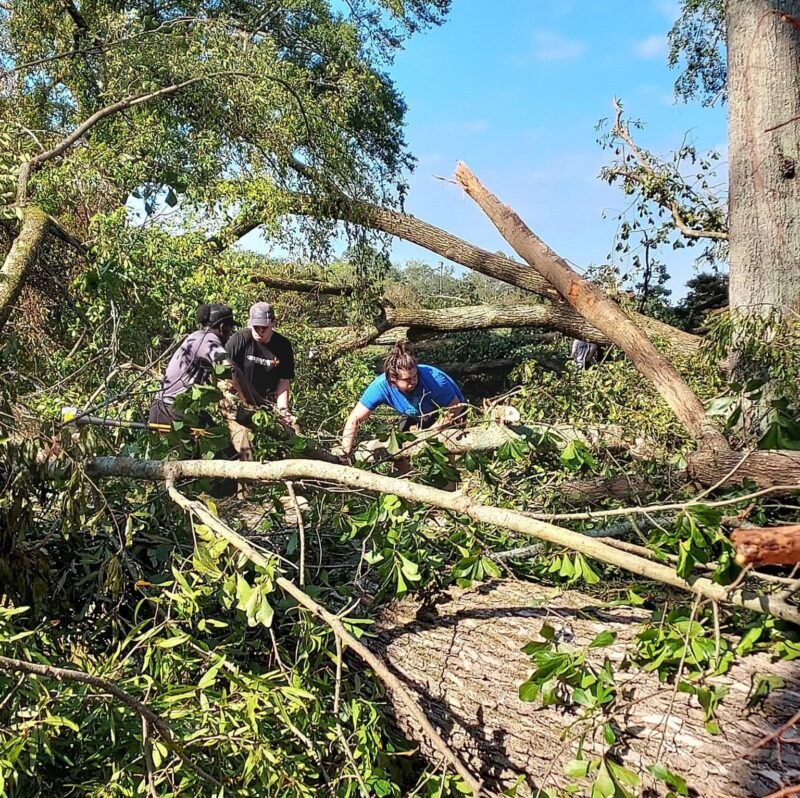
“We’ve really made the most of it,” Shannon says of the students who stayed on campus. She also praises faculty and staff members who have assisted with campus cleanup and in other ways since the storm. She says students who helped “mirrored” that example.
Staff members who spoke about their experience with Helene also remarked on the calmness of the Erskine community and expressed concern for people still suffering.
Michelle Collins, a member of the Aramark staff at Erskine, says she “sympathizes with those in North Carolina and Tennessee who have lost everything.” Her husband Daniel Collins, also an Aramark staff member, had not heard from some of his relatives in North Carolina.
Nearby communities have seen fights over gasoline, but in Due West, the gas station reopened without incident. Michelle and Daniel agree that “In Due West, the order of the day has been ‘neighbors helping neighbors.’”
One staff member with a unique perspective on the storm is Resident Director and Bahamas native Clay Henfield, who is from Eight Mile Rock, a settlement on Grand Bahama. “The second I heard the word ‘hurricane,’ I went into survival mode,” he says.
Born and brought up on an island and well-schooled in hurricane readiness, Clay believes “You can’t be prepared for everything, but you can be prepared for most things.” His efforts paid off when he was able to rescue a student who left campus, couldn’t find gas, and got stranded in Greenwood.
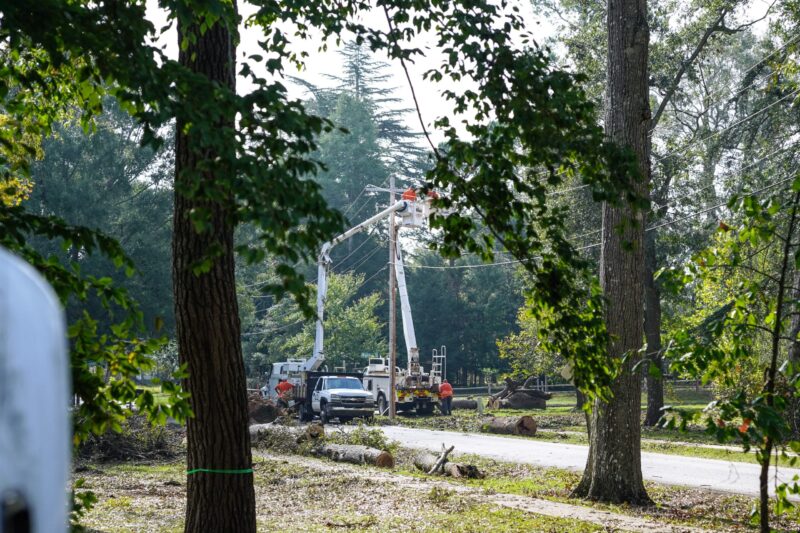
Describing the aftermath of Helene as “a heartwarming experience,” Clay appreciates the community and leadership at Erskine. He notes that Erskine President Dr. Steve Adamson and First Lady Von Adamson came and talked to the Resident Directors and students and says Vice President for Student Development Dr. Wendi Santee did a good job in providing information even though some communication tools were sidelined by the storm.
Vice President for Operations and Strategic Planning Bobby Clarke began assessing damage and coordinating facilities efforts early on Sept. 27 and worked with Information Technology Specialist Harrison Timms to establish a hub for internet access and generator-powered electricity. Under the capable leadership of Assistant Manager Raleigh Davenport ’12, meals were prepared and served for students as cleanup and power restoration efforts continued in the Due West area.
Classes resumed Monday, Oct. 7. The next day, a table was set up in front of Moffatt Dining Hall with a camera and microphone so that students, faculty, and staff might tell their Hurricane Helene stories.
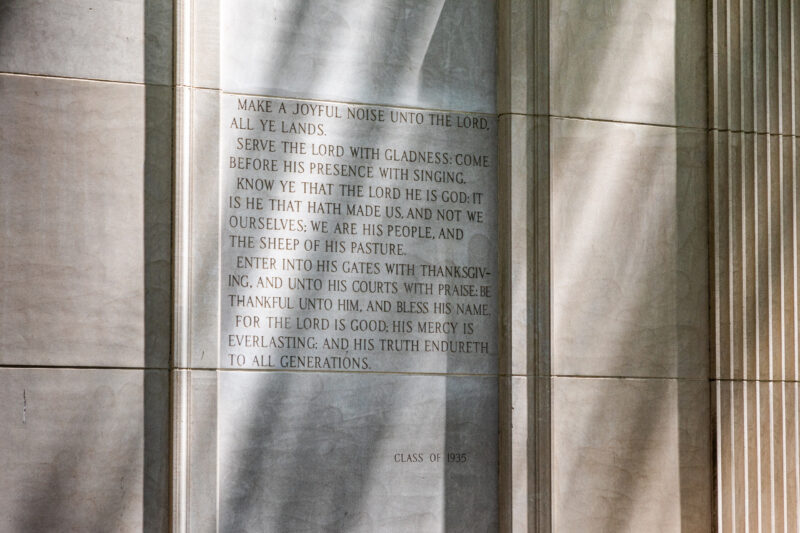
See and hear members of the Erskine community here.
